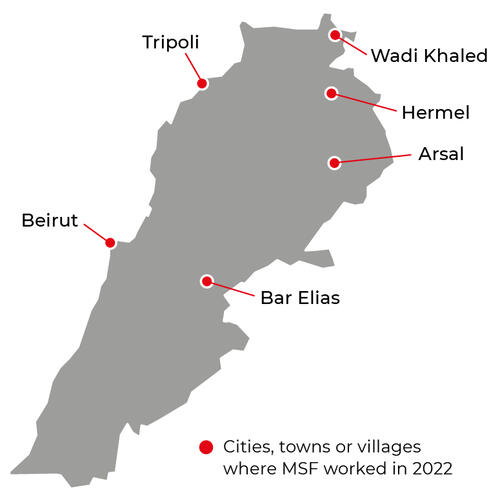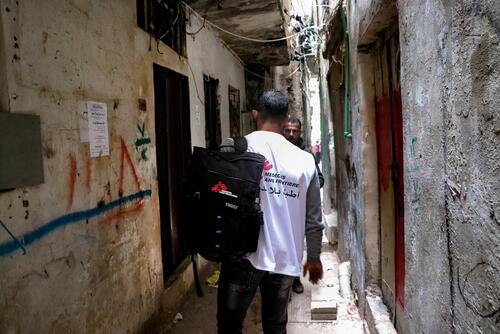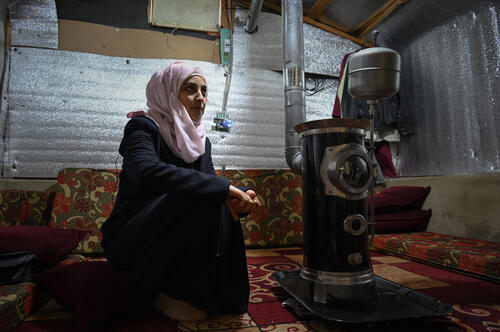The highly privatised healthcare system in Lebanon is a major barrier to ensuring accessible, affordable and high-quality medical services for all. In the past three years, it has become increasingly difficult to obtain healthcare, as more and more people have seen their income plummet, forcing them to rely on deteriorating public services and medical humanitarian organisations for medical assistance.
In 2022, we continued to adapt our long-term activities to cover the needs of Lebanese people, as well as refugees and migrants, who often have limited access to medical care. Lebanon is home to an estimated 1.5 million refugees, mainly Syrians and Palestinians, many of whom live in precarious conditions in displacement camps. The country also hosts around 250,000 migrant workers.
Our services include reproductive healthcare, mental health support, paediatrics, surgery, wound care, treatment for chronic diseases, and routine vaccinations for children. In 2022, we also provided treatment for children in Bar Elias living with thalassaemia, an inherited blood disorder that affects the production of haemoglobin.
In addition, we responded to emergencies, most significantly, the first cholera outbreak in Lebanon for almost three decades. As thousands of cases were recorded, we opened two cholera treatment units in Bar Elias and Arsal, and several oral rehydration points in Tripoli, Beirut, Bar Elias and Arsal. To curb the spread of the disease, we ran awareness-raising and infection prevention campaigns, and distributed hygiene kits, containing items such as soap and detergent. Our teams also supported the national vaccination campaign by conducting door-to-door cholera vaccinations in the north and northeast of the country.
We are constantly increasing our support to the Lebanese health system, by training staff and donating medicines and medical supplies, and building the capacity of health facilities across the country. Strengthening and enhancing the capacity of healthcare providers at local and national levels remains a priority.









